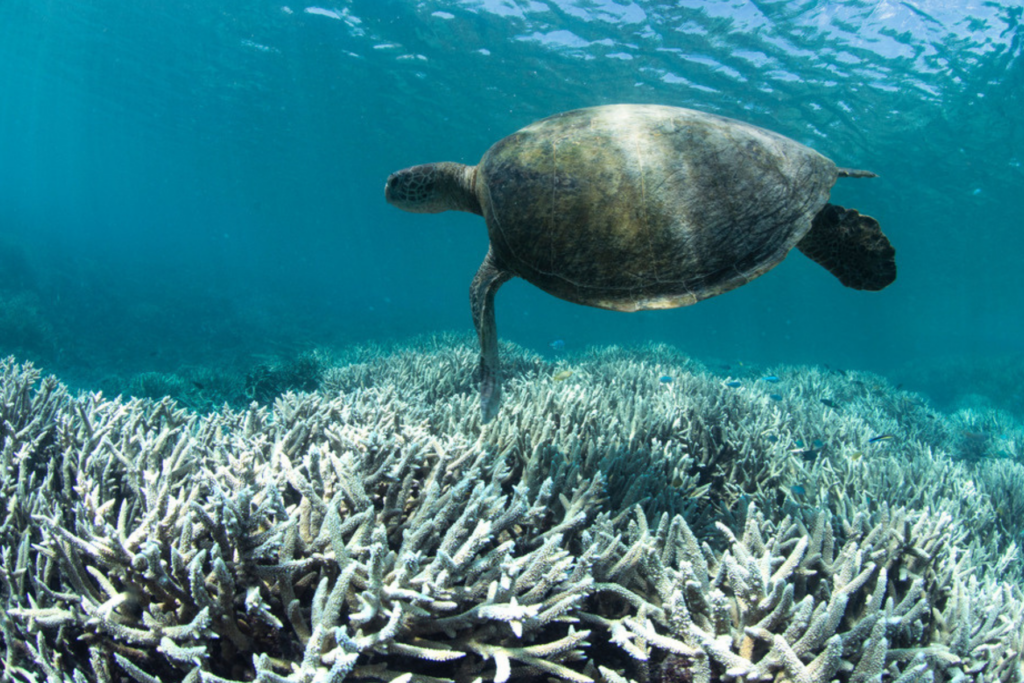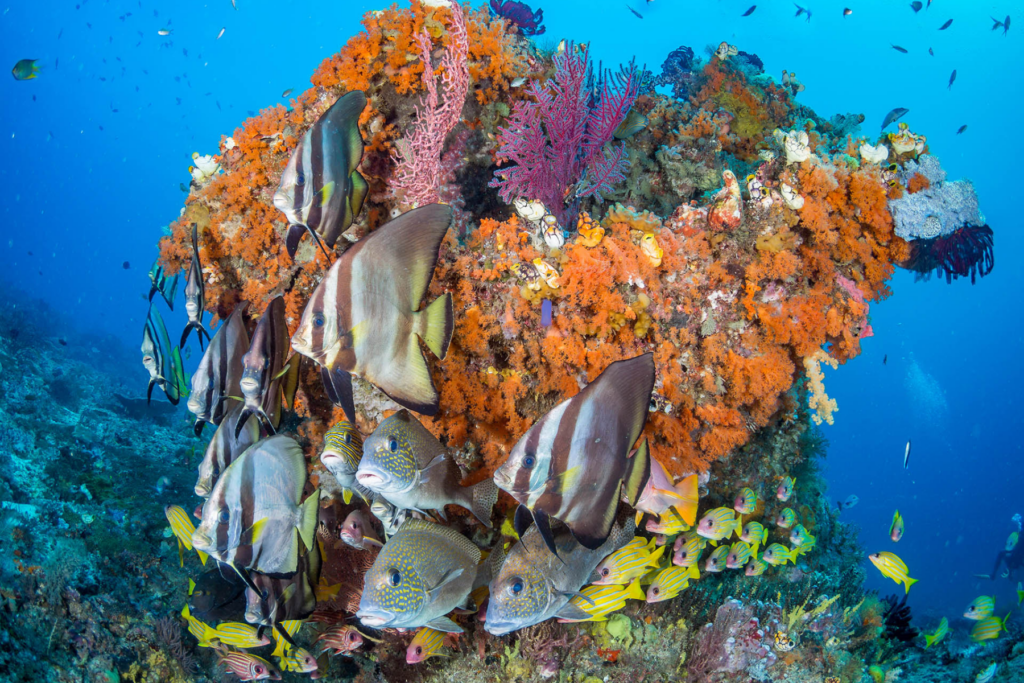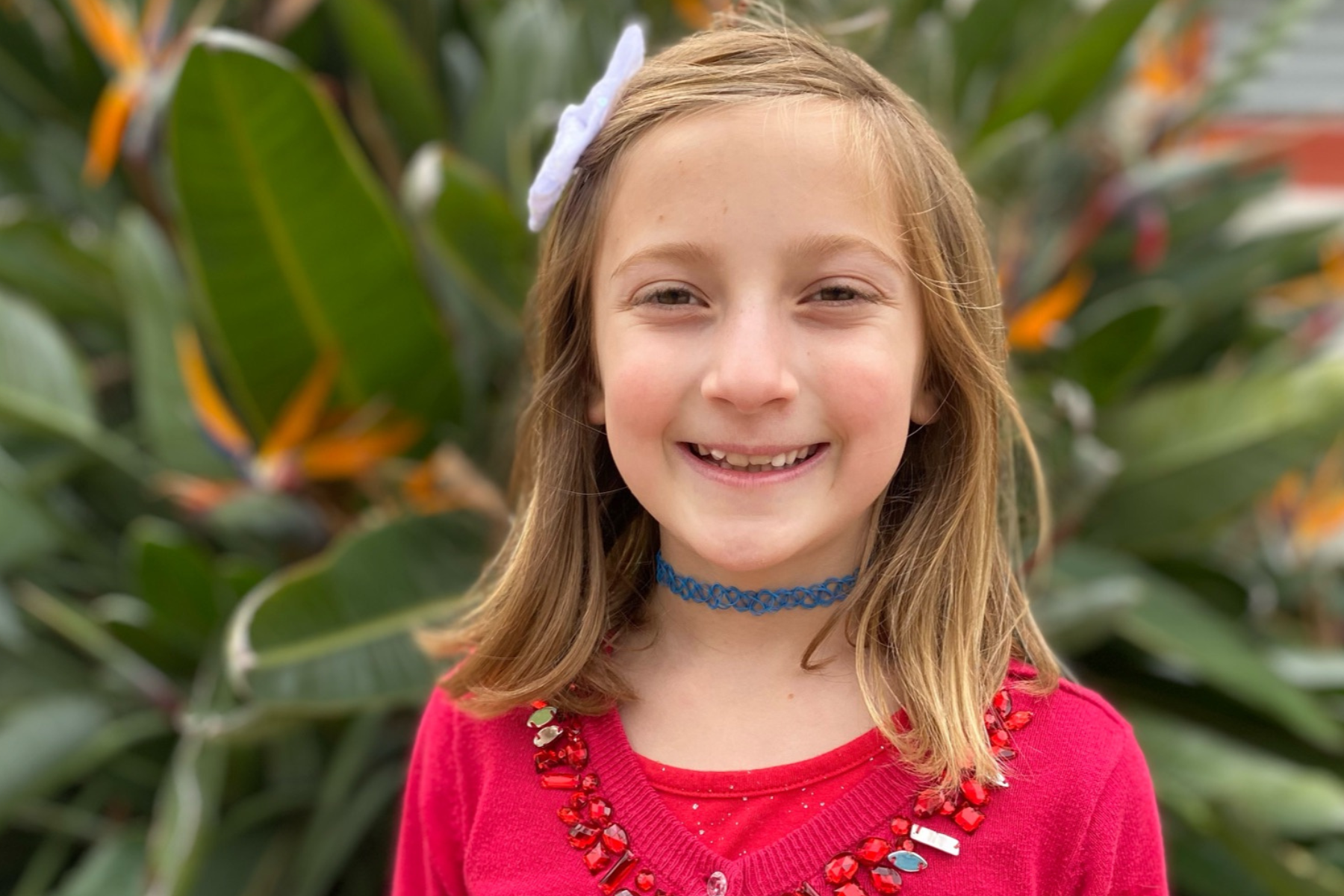When 8-year-old Maya learned about coral reefs, she was instantly intrigued by their vibrant colors, unique characteristics, and the countless benefits they bring to ocean wildlife and coastal communities. She also felt scared and deeply upset after finding out that coral reefs are declining at alarming rates. Inspired to take action, Maya wrote to us with an open letter. Here’s what she had to say:
Save Planet Earth
By: Maya, Age 8
Coral reefs are important because they can prevent many things from happening and they can do many things. One thing is that they give animals a home. One of every four marine animals lives in coral reefs. Clownfish, giant clams, turtles, and many different kinds of fish call coral reefs home. Corals help the animals hide from predators and get food. A fun fact about clownfish in coral is that clownfish are really colorful so that they can blend in with the coral. In addition to helping the animals, corals help protect islands from big waves that are coming to destroy, attack, and erode the island.
But coral reefs are bleaching because of human activity, warming oceans, and greenhouse gasses. One of the causes is pollution, such as fertilizers, pesticides, human sewage, oil spills, and oil drills. Greenhouse gasses, like carbon dioxide, are another cause. When carbon dioxide mixes with saltwater it creates acid. Acid helps the corals bleach, which is not helpful. Greenhouse gasses also cause global warming. Global warming causes glaciers and icebergs to melt into the ocean and then the ocean rises. Corals can’t grow because they don’t get enough sunlight. Coral reefs are also bleaching because of global warming and the ocean is getting too hot. Rising temperatures of the water slow down the growing of the coral. Another way the coral is bleaching is because the algae leaves the coral when the water gets too hot and this can kill the coral.
We need to start protecting our coral reefs because it’s now or never. If the coral bleaches, then the reef goes. If the reef goes, then the animals go. If the animals go, then the ocean goes. If the ocean goes, then the planet isn’t a planet. It creates this whole chain.

Since we have to protect the coral now, these are some ways that we can do it:
- Eat less meat. The meat that most people eat is beef and when cows fart they release methane which is a type of greenhouse gas.
- If you purchase fish, ask where they come from because some people might have taken them illegally from a coral reef.
- Walk or use public transportation. If you walk or use public transportation, you aren’t using any gas which can be released into the air and pollutes the air. This gas becomes carbon dioxide which causes warmer temperatures.
- Use less electricity. When we use electricity, we burn fossil fuels from a coal plant and this creates greenhouse gasses.
- Recycle and make less trash so it will not drift into the seas.
- Use natural resources for your grass and natural cleaning supplies for your house. You know it won’t have pesticides.
- Share what you have learned with other people so they can do it too.

If you do these things, we can help save the coral reefs. If you are like me, a person who is very sad about coral reefs bleaching, don’t be sad. We can always fix it. We can always make speeches and signs and go protest. We can also support organizations that do research on coral reefs like the Coral Reef Alliance. If we do all of this, then our planet isn’t destroyed and we can save our Planet Earth, our home where we live.
Thanks for sharing your thoughts, Maya! We’d love to continue hearing from other youth activists and coral reef supporters. Help support our mission by sending in your own open letter (or encourage your child to write one).
